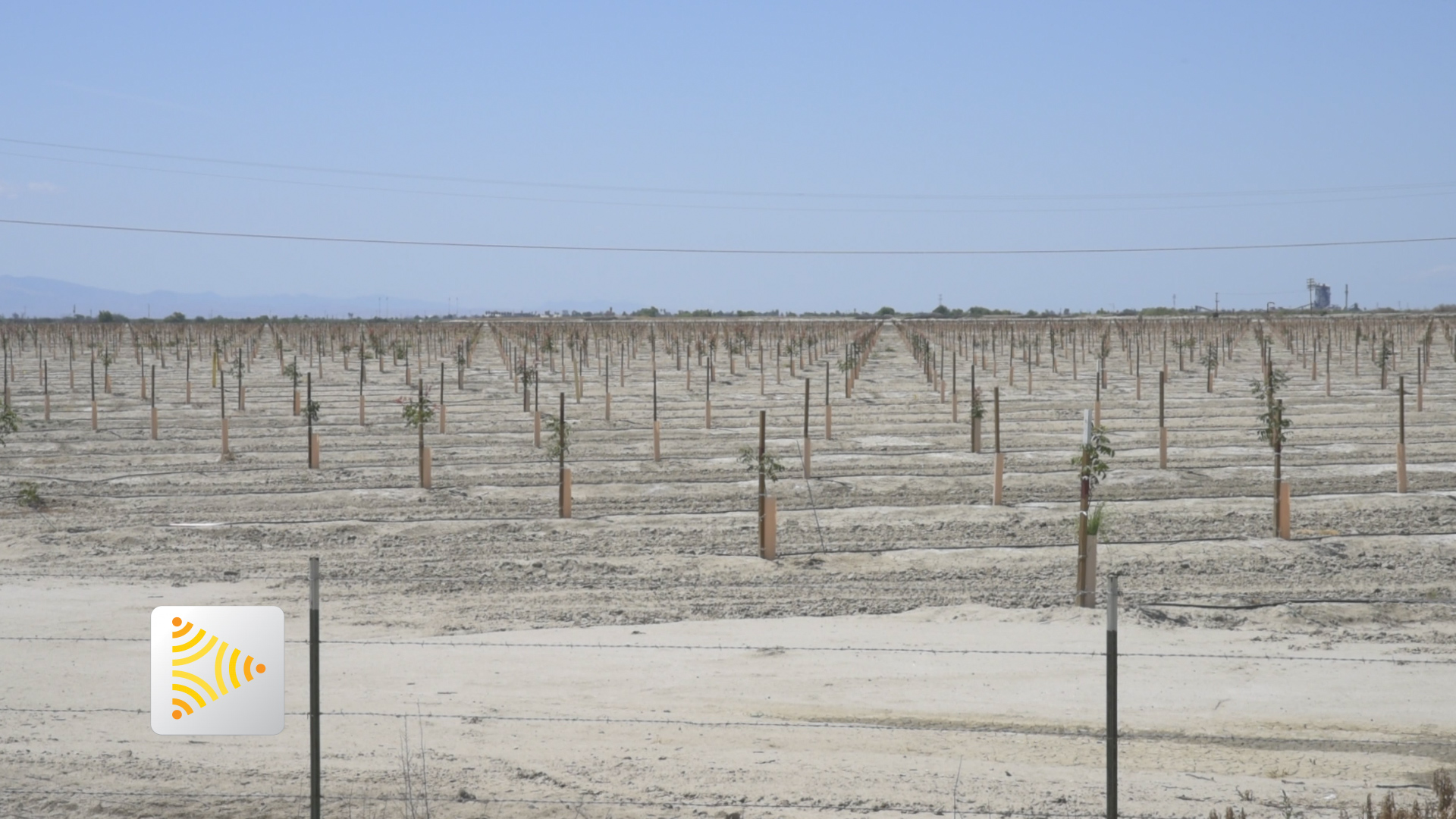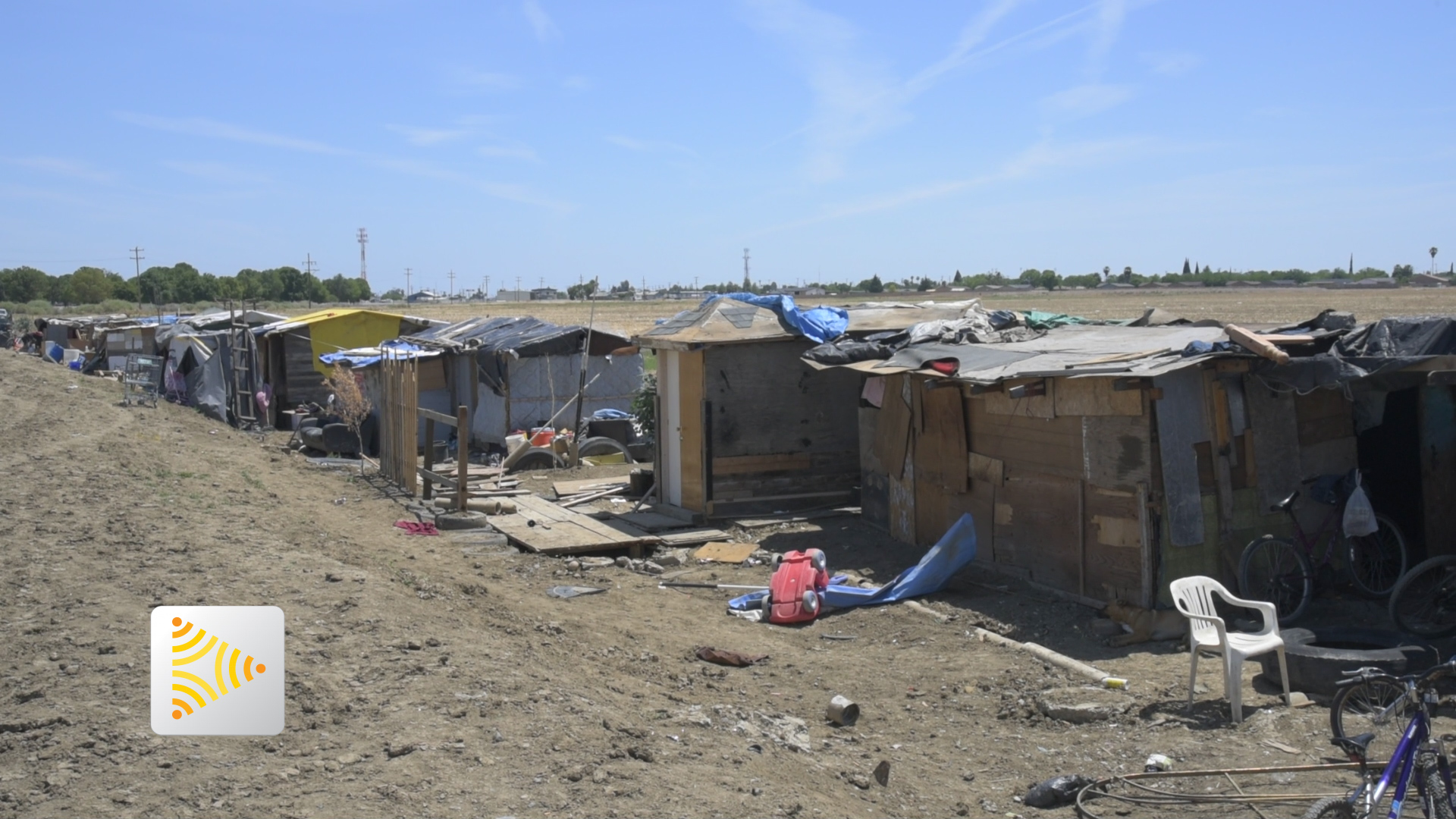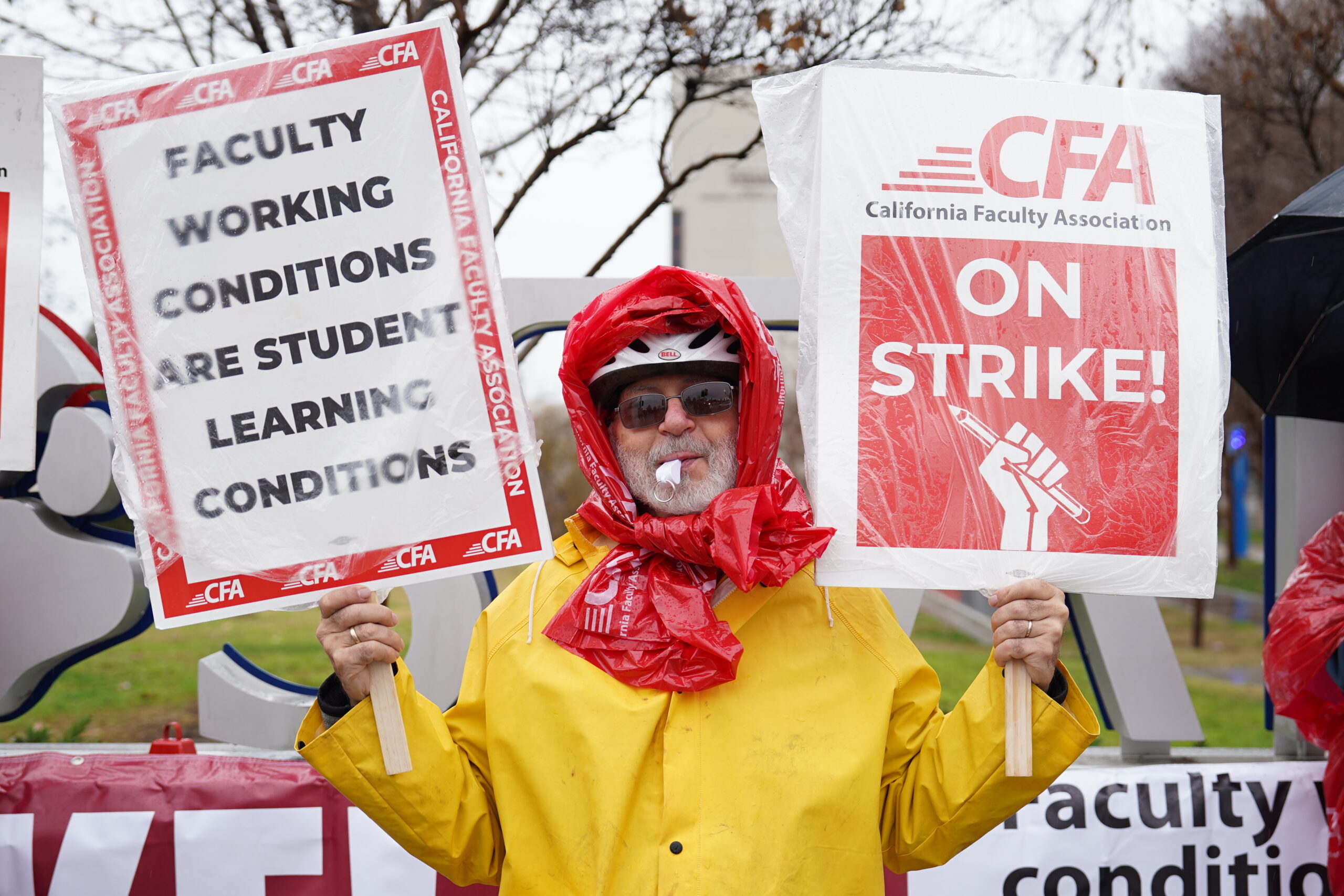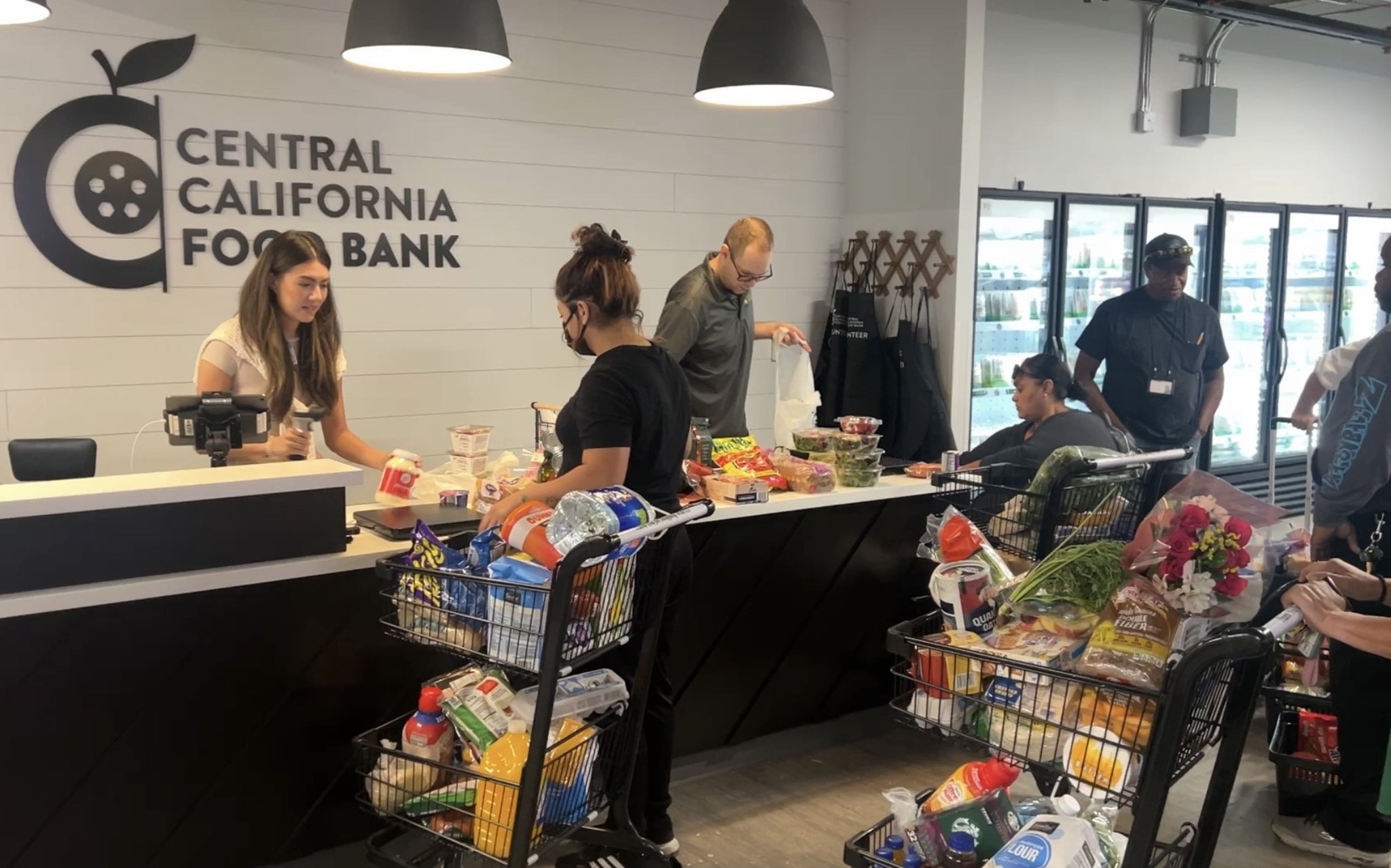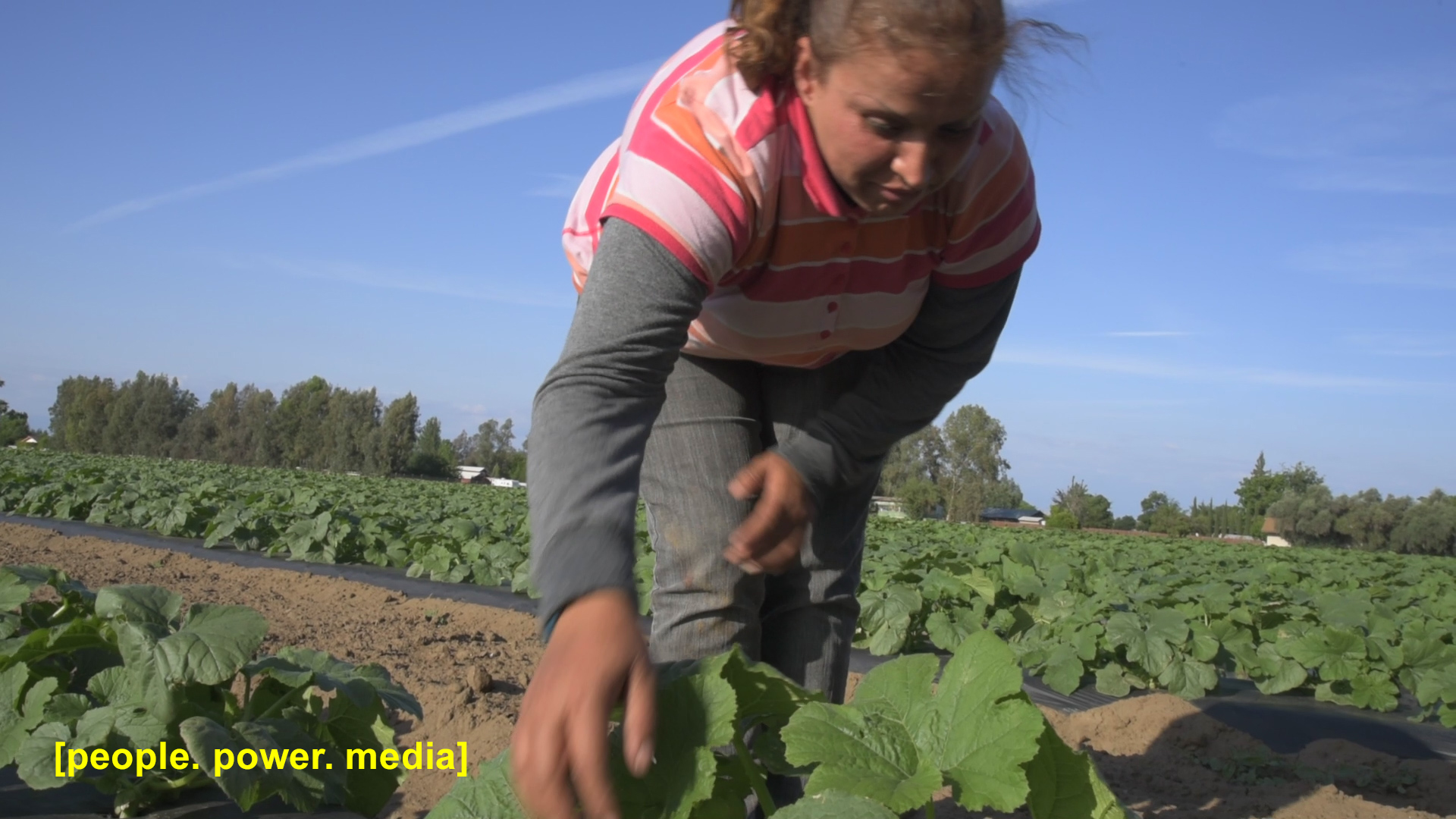
Undocumented farm workers are hit the hardest because of California’s extreme drought. We went to the heart of the Central Valley, west Fresno County, to talk to residents about how they’re surviving the massive job losses. We interviewed an undocumented worker, her son, a social worker, City official and local youth about the dwindling assistance, reliance on food banks, and social impacts felt by the whole community.
This report was in collaboration with Tim Haydock and Steve Thao of The kNOw Youth Media in Fresno City, a project of New America Media.
Video Transcripts:
Dyan Ruiz, Reporter, People Power Media: Undocumented farm workers are the backbone of America’s farm industry. Already living on the margins, the California drought is hitting them the hardest.
People Power Media went to the heart of California’s Central Valley, in towns like Mendota, to find how the drought is impacting workers and their families. We interviewed an undocumented farm worker, her son, a social worker, a City official, and local youth on what they’re experiencing and seeing because of the loss in jobs caused by the drought.
Enedina Bibanco is an farm worker living in Fresno City with her children.
Enedina Bibanco, Farm Worker [subtitled from Spanish]: I am affected because how does one improve their family’s situation. If there’s no water, there’s no work. This is a huge problem for a mother.
Ruiz: In place for decades, a system of reservoirs, canals and river deltas brought water from the nearby Sierra Nevada mountains to make the Central Valley, America’s Breadbasket. California provides half of the nation’s fruit, vegetables and nuts. But as Social Worker Candie Caro points out, the drought has drastically reduced available water for farming.
Candie Caro, Proteus, Inc., Service Center Manager: The river used to be up to where the levees are. Now if you look at the river, it’s less than a foot deep.
Ruiz: She knows what this means for job prospects in the area.
Caro: The seasons that last three or four months have gone down to maybe five weeks. You’ll see more and more tree crops, which used to be row crops. Farmers used to hire up to 50 to take care of the row crops. And now farmers can just hire three people. Put the drip lines. Turn on the water. That’s it.
Ruiz: A 2014 UC Davis report estimated that statewide, some 17,000 seasonal and part-time jobs will be lost because of the drought. Nearly 90 percent of those jobs lost are in the Central Valley. The Central Valley is inland from the Pacific coast and runs 450 miles from Redding to Bakersfield. The Central Valley will lose 409,000 acres of crop lands due to the drought.
While the official unemployment numbers for places like Mendota already seem bad, anywhere from 30 to 50 percent, the real unemployment rate can be as high as 70 percent when you factor in undocumented workers who can’t find jobs.
Bibanco [subtitled from Spanish]: I’m from Mexico. I came from Tijuana. I came here because I thought there would be a little better opportunity to raise my kids. The effects of the drought that I have seen right now is that work is ending. You can not continue producing fruit. It’s affecting everyone.
Ruiz: Bibanco must travel farther and farther to look for work. And when she gets there, sometimes there isn’t a job available. When she does find work, she works hourly instead of getting paid by each pallet filled. This ends up being less money for her at the end of the month.
The drought is worsening already exploitative conditions for undocumented farm workers. Caro says they often entrust labor contractors, who charge a fee, in addition to the ride to the work site.
Caro: When it comes to wages, they receive less than minimum wage. Sometimes they can work for $5/hour. A lot of the times the undocumented workers are afraid to even say anything because then they feel like they’re going to be found out, and then deported.
Ruiz: Miguel is Bibanco’s son. He knows first hand the fears that Caro speaks of.
Miguel Bibanco, Fresno City Resident: Growing up, you’re scared. You’re frightened about what could happen to you. Like what if my family gets separated. What if my mom gets deported. What if I get deported. And that’s something that affected me profoundly.
It also impacted people in my family like my mom in that she was very limited in the kind of work that she could do and the kinds of jobs that she could find. That’s one of the biggest reasons we stay here in Fresno and we live here in Fresno and try to work in the surrounding region. It’s very difficult to uproot that level of comfort, that absence of fear and try to take that to a different community.
Ruiz: The Southern Poverty Law Center estimates that at least six out of 10 of all farmworkers in the US are undocumented. While there may be some comfort level for Bibanco and her family because of the prevalence of undocumented workers in the Central Valley, there are no “sanctuary cities” in Fresno County. They can be deported by ICE (U.S. Immigration and Customs Enforcement) at any time.
This also means there’s limited resources that undocumented workers can access while trying to make ends meet during the drought. They can’t receive federal unemployment benefits or any county services such as food, medical and housing assistance. So a major way they survive is sharing housing.
Caro: You can find three or four families very easily living in a shack in the middle of the fields, living together and sharing the expenses.
Ruiz: This is a homeless encampment near the train tracks in Mendota where several families live. This man was building a new shack for a friend, saying he didn’t have time for an interview before departing to get more supplies.
Going into the fourth year of the severe drought, it’s not just wells and jobs opportunities that are drying up, so are the funds to assist farm workers.
Caro: My office served– let’s just say– we spent over 600,000 in rental assistance in about four months. So the need is pretty great, and we see the need now.
Ruiz: The funds that Proteus accessed for that program are tapped out.
Food prices are going up for everyone because of the drought with much of the nation’s produce coming from California. Meanwhile in Fresno County, many undocumented workers line up around the block for food banks. Less and less are able to provide enough food for their families.
Miguel Bibanco: It baffles me that there are people who are surrounded by this virtual cornucopia of food, and they may have enough access to it to even survive. Because as soon as they see these foods, these fruits, these vegetables, it’s going off to someone else’s table.
Ruiz: Access to water for personal use is also an issue for farm workers. Nacho Ledesma is a Mendota Middle School Student who met a café. He’s seeing the impacts of the drought all around him.
Nacho Ledesma, Mendota Student: There’s a couple people that I know that they moved away because it’s hard for them. They can’t keep up with their bills. They can’t keep up.
And it’s hard for them because if they’re not getting no money, then how are they going to pay for their water? Now that they put locks on their meters so they can’t turn it on to take a shower or to get a cup of water.
Ruiz: Paying for water is a big issue in the Central Valley. Wells in rural areas are drying up and costs for drilling new wells have skyrocketed. Some farms can afford the increased costs and are drilling deeper to find the rapidly depleting groundwater. But this in turn affects surrounding wells, like Caro’s, which is drying up.
And the deeper you go, the saltier the groundwater. The UC Davis study says that groundwater is replacing as much as 75% of the agricultural water supply in California because of the loss of available surface water. Many local residents in Fresno County distrust the water coming from their taps and buy bottled water for drinking.
Dwindling access to water, food and shelter isn’t where the impacts of the drought stops. It goes deeper. Joseph Amador is the Mayor Pro Tem of Mendota and a former police officer.
Joseph Amador, Mendota City Council Mayor Pro Tem: Working for Fresno County, I would see the entire Fresno County reports and Mendota was one of the highest of domestic violence. And I think sometimes when things like financial issues come in the family and depression sets in. Things will happen and that’s unfortunate. You do see a lot of drugs, drug use in our community and that’s unfortunate. And we just have to as a society try to work together to make it better.
Out here in the rural area, to have a center where a person who wants to maybe get off the use of drugs, to be able to go in and get some help. You don’t have it out here. You all have it in the Metropolitan areas, but not out here in the rural areas.
Ruiz: Amador said there is a center for domestic violence and rape counselling in Firebaugh, but that’s 8miles away. Caro has also seen the same issues and how youth are being affected.
Caro: The youth are turning to gangs. If they have a hardship in the house. And it’s really hard to notice, but there are more and more gangs out in the rural areas, and they’re becoming like family to the youth. And if they can’t eat at home because there is no food, gangs can usually provide that for them, they fill the gap.
Ruiz: Youth in more stable homes do what they can to help their family. Miguel takes care of his little brother while his mom is out working. Nacho and his friends find ways to earn money so their family can survive.
Ledesma: My friends across the street, they work sometimes, on the weekends, on the fields, just getting extra money for their parents. Because they’re parents are getting older or retiring. They just can’t do it anymore.
Ruiz: The average life expectancy for a farm worker in America is only 49 years old. Nacho’s parents don’t work in the fields. His mom works at Burger King and his dad can’t work because of a stroke. So like others in the community, it’s a struggle and Nacho does what he can.
Ledesma: I kind of like–go sell cans. Like, I’m not ashamed of it. Like, ‘I’m going to go sell cans.’ Like, ‘OK Mom, I’m going to go sell cans.’ Or car batteries, easy 6 dollars. I share with my little brothers and sisters.
Like me, I’d rather work now so I can see, OK, well do I want to be doing this my whole life or just summers? I’d rather get an education. Me personally, I’d like to be a mechanic because I like to work with cars.
Ruiz: Nacho isn’t the only one looking beyond farm work for job opportunities.
Amador: I don’t want it to become a ghost town. Agriculture has been the heart of our valley here. But if we’re seeing that we’re not going to get the water, let’s look for other things to help the economy.
Ruiz: Amador wants the promised State Route 180 to go through Mendota. And there’s been job fairs that include training for new solar plants. The organization Caro works for offers job training for this and truck driving, as well as jobs in local businesses. But, transitioning is tough because undocumented farm workers aren’t able to work so easily for other industries.
Amador: They talk about immigration reform. You can’t be blind about it. People need to get their documents to work in these places like the solar plants, and things like that. And so there has to be some type of immigration reform. People have been here for decades.
Ruiz: When it comes to getting legal immigration status for undocumented workers, it’s anyone’s guess when that will happen in Washington. And just like immigration reform, decisions in Sacramento over who gets access to water are complicated and politicized. Recent reports reveal that more than $320 million dollars in State funds, that were supposed to be rushed to drought stricken communities, are unspent. Authorized over a year ago, the money was supposed to provide water, protect wells from contamination, and upgrade outdated water systems.
Caro, who is on the local Drought Coalition, and has seen many protests for water allocations, has also seen how challenging it is to find a long term solution to the water needs of the Central Valley.
Caro: Allowing more water to come into the valley would let more salt into the deltas and would be harmful. So I see both sides. And it’s sad on both sides. I’ve seen the fact that if we have no more water, the valley will die out. It’ll turn into a dustbowl. And yet if they allow more water, the salt will be harmful. And it will eventually get to the valley here. We need an immediate fix, and water is the immediate fix, but where’s it going to come from?
Ruiz: At this point, the only immediate fix would come from the skies.
Caro: Without the rain, without water, without a place to store the water. It’s just going to get worse. At this point we just need rain.
Ruiz: This is Dyan Ruiz for People Power Media.

